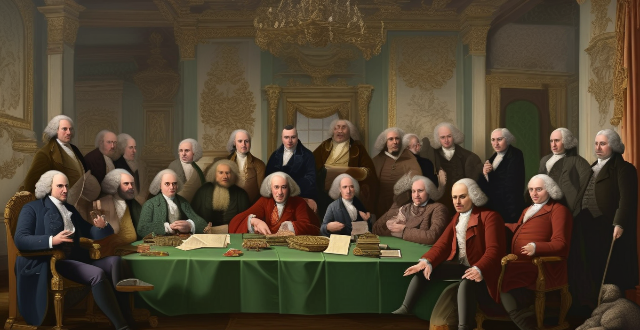Cultural exchange is the process of sharing and learning from each other's cultures, promoting understanding, tolerance, and appreciation for diversity. It offers benefits such as enhancing cultural awareness and sensitivity, promoting tolerance and acceptance, encouraging creativity and innovation, and building international relations and peace. Examples include traveling abroad, participating in international events, multicultural classrooms, interfaith dialogues, collaborative projects between artists, exchanging business practices, international cultural festivals, and international student exchange programs. Cultural exchange has the potential to create a more harmonious world where people appreciate and celebrate diversity while working together towards common goals.

The Benefits of Cultural Exchange
Cultural exchange refers to the process of sharing and learning from each other's cultures. It is a way of promoting understanding, tolerance, and appreciation for diversity. There are many benefits to cultural exchange, including:
1. Enhancing Cultural Awareness and Sensitivity
Cultural exchange helps individuals become more aware of their own culture and values, as well as those of others. This increased awareness can lead to greater sensitivity towards different cultures and a deeper understanding of cultural differences.
Examples:
- Traveling abroad or studying in a foreign country exposes individuals to new customs, traditions, and ways of life.
- Participating in international events or festivals allows people to experience different cultures firsthand.
2. Promoting Tolerance and Acceptance
Cultural exchange promotes tolerance and acceptance by exposing individuals to diverse perspectives and experiences. It helps break down stereotypes and prejudices, fostering a more inclusive society where everyone feels valued and respected.
Examples:
- Multicultural classrooms provide opportunities for students to learn about different cultures and develop empathy for others.
- Interfaith dialogues bring together people from different religious backgrounds to discuss common issues and build bridges of understanding.
3. Encouraging Creativity and Innovation
Cultural exchange encourages creativity and innovation by exposing individuals to new ideas, art forms, music, literature, and technologies. This exposure can inspire individuals to think outside the box and develop innovative solutions to problems.
Examples:
- Collaborative projects between artists from different countries can result in unique and innovative artworks.
- Exchanging business practices and strategies with companies from other countries can lead to new approaches to problem-solving and improved efficiency.
4. Building International Relations and Peace
Cultural exchange plays a crucial role in building international relations and promoting peace. By fostering mutual understanding and respect among nations, cultural exchange can help prevent conflicts and promote cooperation on global issues such as climate change, poverty, and human rights.
Examples:
- International cultural festivals celebrate the diversity of cultures around the world and promote cross-cultural understanding.
- International student exchange programs provide opportunities for young people from different countries to connect and build lasting friendships.
In conclusion, cultural exchange offers numerous benefits that extend beyond individual growth and development. It has the potential to create a more harmonious world where people appreciate and celebrate diversity while working together towards common goals.